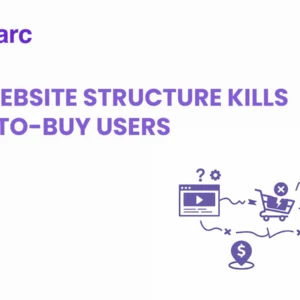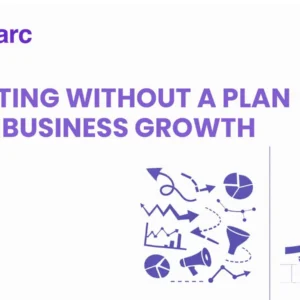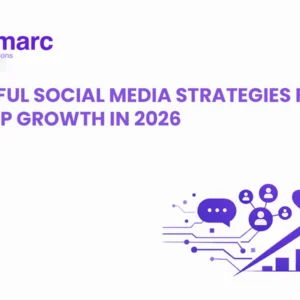Businesses may improve their chances of grabbing their target audience’s attention and encouraging action by leveraging AI to create targeted and interesting email adverts. This may result in increased open and click-through rates as well as improved business outcomes in the end.
Why Does AI Matter for Email Marketing?
Artificial intelligence, or AI, is being utilized more and more in email marketing to increase the efficacy and efficiency of campaigns. The increasing complexity of client data and the need for more efficient personalization and targeting of messages are the reasons behind the need for AI enhanced email marketing. Large data sets may be swiftly and precisely analyzed by AI, giving marketers a greater understanding of consumer behavior and preferences.
Enhanced Relevance and Targeting:
- Provide more relevant and targeted content.
- Increase engagement and conversion rates.
Time and Cost Savings:
- Automate processes like segmentation, customization, and A/B testing.
- Save marketers time and money.
Improved Email Marketing:
- Increase return on investment.
- Maintain competitiveness in a digitally-oriented market.
Creating Connection: Increasing Interaction with Tailored Emails
Personalization is key to email marketing, and AI has made it easier than ever to tailor emails to each recipient. Businesses might create more engaging and pertinent email marketing that is customized for every customer.
By employing AI to evaluate consumer data, such as past transactions or browsing history, businesses may gain a deeper understanding of each customer’s interests and preferences. By using this information, businesses may create customized emails that are more likely to connect with each individual recipient, increasing interaction and conversion rates.
For instance, companies may use a variety of techniques to improve customer relationships and create a more positive brand image, such as addressing customers by name, recommending products based on their past purchases, or even sending customized birthday offers.
Utilize Data to Forecast Your Customers’ Behavior
Predictive analytics, which makes use of artificial intelligence, has become an essential tool for email marketing. Through the examination of past client behavior, such as past purchases or email exchanges, businesses may apply predictive analytics to spot patterns and project future customer behaviors.
Predictive analytics, for example, may help businesses identify clients who are most likely to make a purchase soon. Afterward, customized email content may be sent to these clients in an effort to encourage and profit from their possible purchase intent. Combining this strategy with AI enhanced email marketing like customization and dynamic content makes it very effective.
Models of Natural Language Processing for Emails
Email marketing with AI might be greatly improved by using Natural Language Processing (NLP), an artificial intelligence (AI) method that understands and interprets human language. Companies may use natural language processing (NLP) to write emails that are more interesting to read and that seem more human.
NLP, for instance, may be used to design a more sympathetic and understanding email answer by analyzing the tone and emotion of the customer’s response. Moreover, natural language processing (NLP) may provide email content with a subject line that seems more authentic and connects with the reader.
AI-Powered Streamlined and Automated Email Marketing
By seamlessly incorporating AI-driven automation, businesses may significantly increase the efficiency and effect of their email marketing efforts, which are generally distinguished by their complexity and time-consuming nature. Automated email campaigns make use of artificial intelligence (AI) to effectively handle important aspects of the email marketing process, such as content generation, scheduling, and delivery.
Essentially, companies may set up email sequences that are automatically sent out in reaction to particular occasions or client behaviors, such birthdays, anniversaries, or interactions.
Use AI to Increase Email Deliverability to Inboxes
Email marketing with AI heavily relies on email deliverability—the crucial component that guarantees an email reaches the recipient’s inbox. By utilizing artificial intelligence (AI), businesses may increase email deliverability rates and make sure their target audience receives their communications efficiently. Email infrastructure, sender reputation, email content, and subject lines are just a few of the numerous factors that AI may examine to determine how they affect email deliverability. Businesses may find areas for development and take proactive steps to optimize their email marketing strategy by closely examining these components.
AI, for example, may track email engagement rates and spot inactive subscribers, which could have a detrimental effect on overall deliverability rates. AI is also capable of closely examining email content to make sure it complies with anti-spam rules and improves its chances of getting past email providers’ filters. Businesses may expand the reach and efficacy of their email marketing campaigns by using AI to improve email deliverability rates. This increases engagement, conversions, and total return on investment (ROI).
FAQs
-
In what ways might AI improve email marketing campaigns?
Answer: You may categorize your audience according to their interests, activities, and preferences by using AI technologies to analyze your email data and find patterns, trends, and correlations. Make use of automation Managing email marketing may be difficult and time-consuming.
-
What is the role of AI in email communication?
Answer: Data may be used by AI to deduce the names, locations, hobbies, and most recent email check-in times of recipients. After that, this data is connected to information about you to automatically create distinct copies of your message for every recipient.
-
AI in email marketing: what is it?
Answer: AI is used in email marketing to improve messages for successful and tailored communication by utilizing user behavior, demographics, purchase history, location and device data, segmentation, A/B testing results, social interactions, feedback, and timing insights.
-
In what ways may artificial intelligence enhance your marketing approach?
Answer: AI allows you to customize and develop marketing content, automate marketing processes, evaluate and anticipate consumer behavior, and more. Every day, new AI tools are released into the market. They guarantee to make marketing professionals’ duties easier, faster, and smarter.
-
To what extent does AI work in marketing?
Answer: Marketers may generate and optimize content with AI’s assistance to satisfy the new criteria. E-commerce: By providing businesses with a more sophisticated understanding of their customers’ requirements and purchasing patterns, automating activities, and streamlining workflows, artificial intelligence (AI) is helping them improve their e-commerce programs and digital marketing capabilities.
Conclusion
In conclusion, email deliverability is a crucial component of email marketing. Businesses can use AI to make sure that their email content reaches its target audience, which will increase the efficacy and impact of their email marketing plan.
To put it plainly, the text highlights how important artificial intelligence (AI) is to corporate email marketing. AI facilitates the creation of compelling and targeted email messages that appeal to specific recipients, increasing open rates and engagement.








